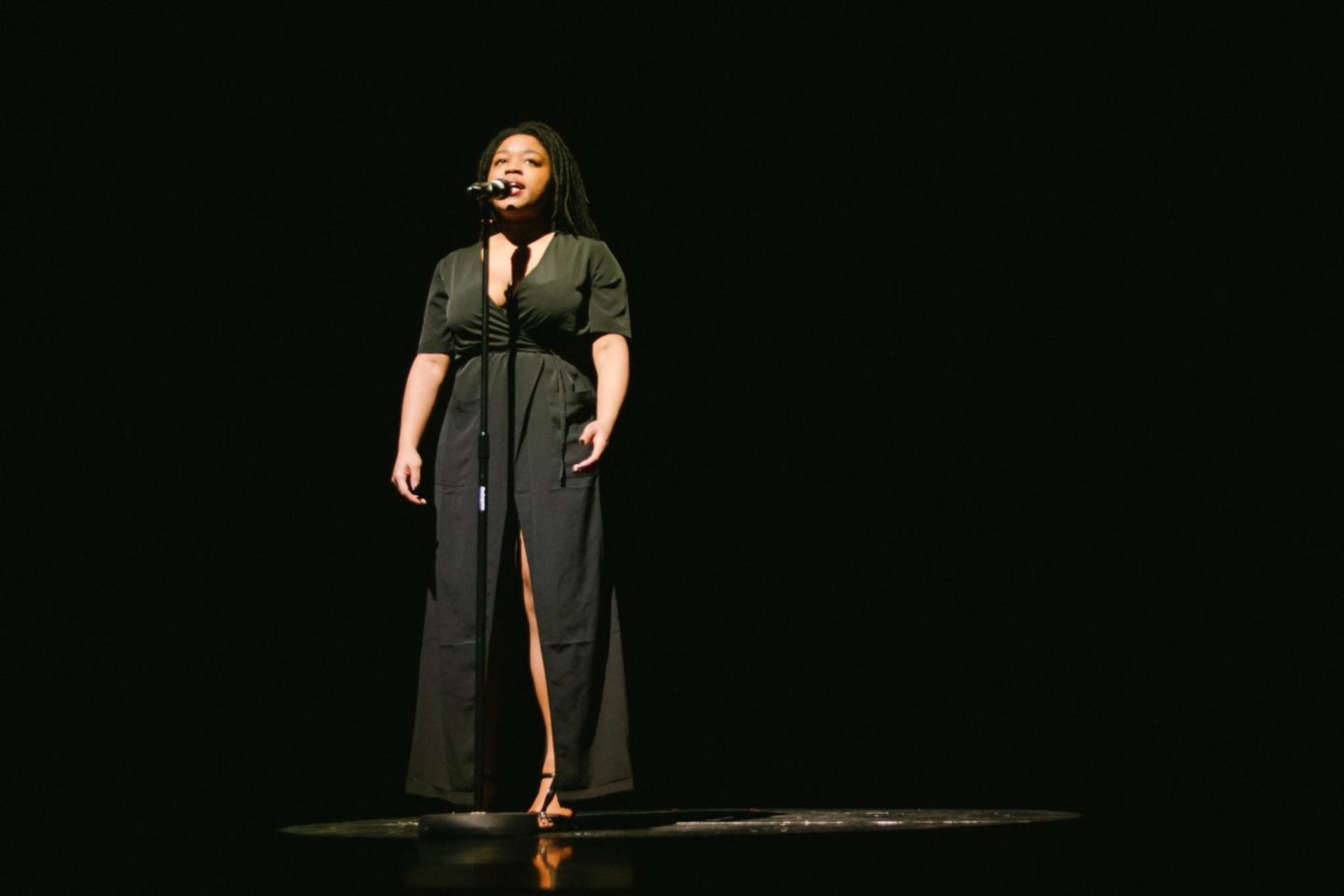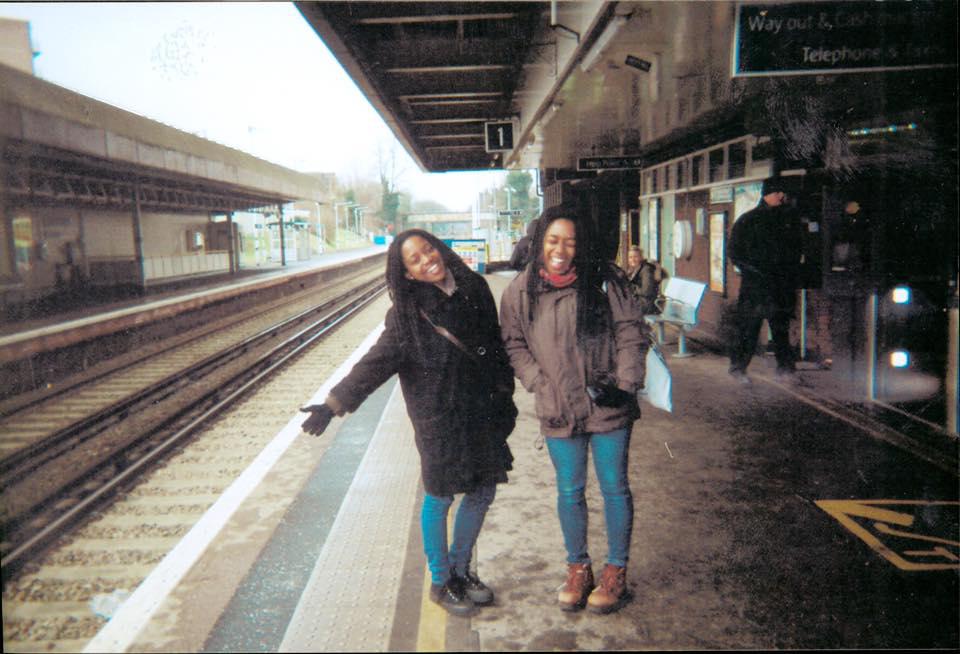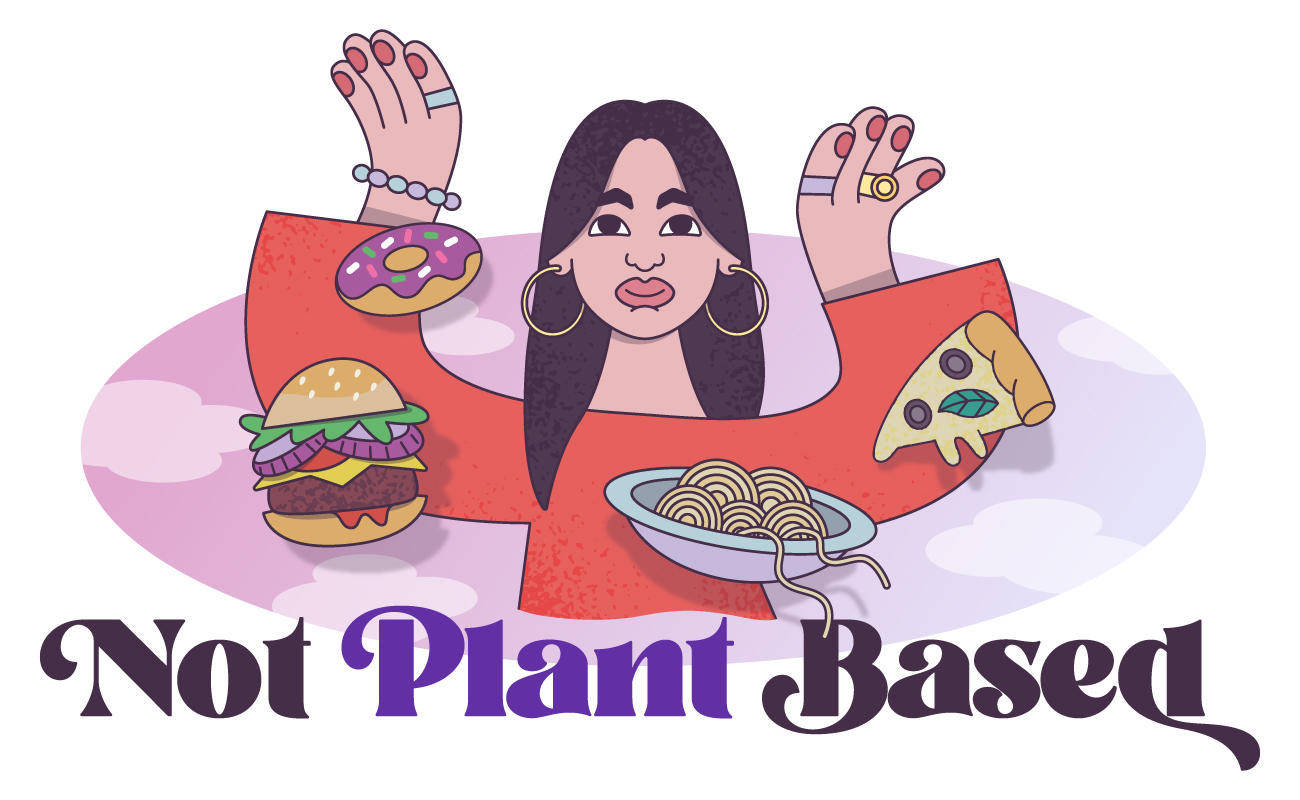
Amongst too many other things to list in a first paragraph, Not Plant Based has taught me that people who suffer with bulimia and binge eating disorder tend to be more reluctant to come forward and talk about their issues. I have my own theories for why this is, one of them being that with these two eating disorders, you don’t necessary lose weight, as in my case I actually put weight on.
As I sit down for tea and toasted sandwiches with Georgia, she understands my reasoning. Like me, Georgia has been another former bulimic to open up about her struggles and obsessions with food and the way she looked. I first watched a film about Georgia on the Guardian, and fell in love with her story. So much so that I tracked her down in a typically journalistic fashion so that I could meet up with her.
When we do meet, Georgia, now 22-years-old tells me that her disorder started at around the age of 15/16 – the same as me. The first thing she began to do in order to manipulate the shape of her body was to starve herself, then realised she could make herself sick. Georgia describes bulimia for her as being a sort of equal and opposite reaction: Like cleaning up the dishes after eating, she’d make herself sick, it was ritual. Back during her teens, she only told her twin sister and her best friend about what she was going through, and has since been brave enough to open up on the Guardian film, to which she says her friends have been very supportive. It was her sister who encouraged her to participate in the film in the first place.
“I never ask for help”, Georgia says, with regards to all aspects of her life. She considers herself a quiet and insular person, unlike her sister, who was always more popular. Georgia feels she’s always been more susceptible to “all the problems”. Explaining, “her teeth are perfect, mine aren’t”, her twin had also been smaller than her, and Georgia always felt she had to be the same. Her sister wasn’t affected by eating disorder herself and Georgia would remember making herself sick in front of her sister who would tell her to stop. “If I have to hide it from you, my twin, the closest person to me in the world, then I’m never going to be able to tell anyone.”
Control for Georgia was a strong factor throughout her eating disorder, but also considers bulimia itself to be an out of control act. “You feel like you’re being a bad bulimic, it’s so twisted.” As with many others who suffer with bulimia, Georgia just couldn’t ever resist eating and had very skewed ideas of what eating normally meant. “I thought binges were just eating in general”, eating a bowl of grapes, for example, which she would describe as a “mistake”. Bulimia and binge eating are like living in a state of “paralysis”, Georgia thinks, as you’re not able to do anything but focus on food.
We talk about identity next, an issue both me and Georgia battled with in our younger years. “I couldn’t take anyone making a comment about me. I’d just overanalyse it. It’s really difficult, especially being a teenager” – ain’t that the truth. Now and then, Georgia feels like she could slip back into her old patterns of disordered eating “a lot of the times you forget the bad parts” and you only remember things, like, being super skinny, but she admits this is fantasy. “When you’re trying to recovery, you have to relearn everything.”
Her recovery began very slowly after a hospital trip when she was starving herself, and put on a lot of weight subsequently. “I couldn’t stop eating because I was so hungry.” Binge eating stayed with Georgia for the longest time out of all the multiple facets to her illness, which was true for me too. “With most addictions, like alcoholism, you might go without it, but how do you go without food?” This makes every meal time a battle.
I wonder if Georgia struggled with anxiety the way I did. “I think so”, she says. She used to hate going outside just in case strangers would think she had put on weight. Georgia also thinks she had elements of depression, which commonly comes with anxiety. “You just want to hide away with it.”

Georgia used to feel very uncomfortable talking about her eating disorder as “there’s a lot of stigma especially within the black community. People don’t want to talk about it”. She adds that in the Caribbean and in Africa, women want to be bigger as it’s “a sign of wealth” and seen to be “sexy”. Her parents didn’t know how to deal with Georgia’s desire to be smaller when she was younger. “If you’re black, and you’ve got a mental illness, you’re seen as just a right off.” It’s taken Georgia a long time to be okay with her shape.
Tumblr was what Georgia used as a guidebook for how to be thin, frequently the thinspiration hashtags regularly for research. She noticed that there were no black people in the catalogue of thin women, who she assumed had eating disorders too, that she’d been studying, “so I thought, it’s just me”. A quote Georgia lived by during her Tumblr days was “don’t count the days, make the days count”, a seemingly harmless quote that she used to fuel her eating disorder.
Myself and Georgia have a lot in common, including how we used to lust over old photos of ourselves where we were looking particularly thin and begrudging how we couldn’t maintain that. Georgia says that looking back, this was “haunting”, as we always knew what we weighed in each photo. Another similarity in our disordered eating was that we would always obsessively write down goal weight and how far we were from it. She asked me my goal weight, and I tell her. “Are you joking?! Mine too! I’ve got it tattooed on my neck! That is so weird.”
Our conversation highlights to me just how many years we both lost to disliking ourselves, so what’s changed? I ask Georgia if she loves herself. “I think, yeah, definitely, yeah”. Why? “Because I’m better.”



